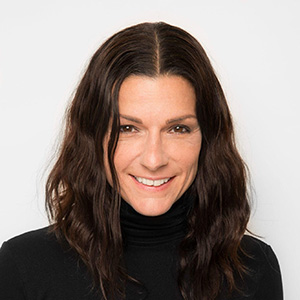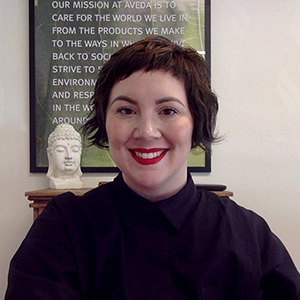Quick Links
Everything to know about cosmetology
Cometologists are licensed professionals that provide cosmetic treatments to the hair, skin and nails.

Although not everyone may be familiar with the more technical name, chances are that you’ve encountered a cosmetologist if you’ve ever set foot in a salon or spa.
By definition, cosmetology encompasses a wide range of skills in the practice of beautifying the hair, skin and nails. Cosmetologists, therefore, are often considered a sort of jack of all trades in the beauty industry. It’s true that hair stylists, barbers, estheticians, nail technicians and similar beauty professionals are all considered different types of cosmetologists, but someone who is licensed as a cosmetologist has the education and training to do practically everything that these other professionals can.
By definition, cosmetology encompasses a wide range of skills in the practice of beautifying the hair, skin and nails.
“Cosmetology really simply is the beginning point of someone who works in the business of beauty,” said Traci Sakosits, Vice President of Education and Creative Direction for the Aveda Arts & Sciences Institutes which offers cosmetology programs at 17 different locations across the country.
If you’re thinking about starting a career in the beauty industry, becoming a cosmetologist can be a great way to dip your toes in many different areas within the field. This can give you the chance to discover whether you’d like to specialize or whether you enjoy doing a bit of everything. Plus, having a cosmetologist license usually means you have the greatest amount of flexibility when it comes to what kinds of services you can or cannot provide to clients.
How do I become a cosmetologist?
Decide if becoming a cosmetologist is right for you.

Cosmetologists provide a range of services to help people look and feel their best. If you like the idea of working in the beauty industry but aren’t quite sure which niche interests you most, becoming a cosmetologist could be a great option for you.
Research your state’s licensing laws.

Every state’s requirements to get licensed as a cosmetologist are a little different. No matter where you live, however, you need to complete an approved education program and take a licensing examination. Start by researching what your state requires so that you can find out how many hours of education you need and anything else you need to prepare for.
Graduate from an approved cosmetology program.

Cosmetology education and training programs are generally offered at beauty schools, community colleges and technical colleges. Some states also accept apprenticeships for the education portion of their licensing requirements. Although the length of these programs can vary, most states require cosmetologists to complete a program of at least 1,500 hours.
Pass your state’s licensing exam(s).

Most states require cosmetologist licensing candidates to pass a written theory and practical examination issued by the National Interstate Council of State Boards of Cosmetology (NIC). Some states may also have candidates pass a state-specific laws and rules exam.
Continue learning to advance your career.

Only a minority of states require cosmetologists to complete continuing education to maintain their license. Whether or not it’s required, beauty professionals should seek out opportunities to learn and expand their skills through classes, workshops, conferences, networking events and more if they want to be successful in the long run.
Requirements for becoming a cosmetologist
Cosmetologists need a license before they can start working and providing services to clients. Licenses are issued by states, and each state has its own unique requirements.
In general, the requirements for licensure in most places consist of the following:
- Meeting minimum age and basic education qualifications
- Completing an approved cosmetology education program
- Passing your state’s licensing examination(s)
Since cosmetologists can usually do all or most of the services that hair stylists, barbers, estheticians and manicurists/pedicurists offer, it’s not surprising that the number of hours cosmetologists must complete for their education requirement is often higher than these other professions. Most states require cosmetologists to complete at least 1,500 hours of cosmetology education, while some require less and others more.
“Even though there is some slight variance, generally you get somewhere between nine and 12 months with students,” said Brittani LeJeune, the Director of Curriculum at the Aveda Arts & Sciences Institutes.
After they complete their cosmetology education and training, cosmetologists must take and pass their state’s licensing exams. Most states require cosmetologists to take a written theory exam and a practical exam. Once these requirements are satisfied, most people can receive their license and begin working.
How much do they make?

The median annual salary for hairdressers, hairstylists and cosmetologists is $34,970 according to the 2023 Occupational Employment and Wage Statistics from the U.S. Bureau of Labor Statistics (BLS).
While this can give us a decent sense of what you could make as a cosmetologist, it’s important to note a few things. First, cosmetologists often receive tips that are not factored into this data. Second, the BLS doesn’t include data for self-employed workers. Since many cosmetologists are self-employed, data from the BLS represents only a portion of the actual number of cosmetologists out there.
In addition, many different variables can affect an individual cosmetologist’s salary, including location, years of experience, any additional credentials you may hold and more.
Job growth for cosmetologists
The employment of hairdressers, hairstylists and cosmetologists is projected to grow 7.7% through 2032, which is faster than the average across all occupations.
The BLS predicts that one factor driving this growth is the increased demand for personal care services in the coming decade. As the BLS points out, it’s worthwhile to note that some of this growth may be due to employment levels simply bouncing back to pre-pandemic levels after the beauty industry was hit hard by COVID-19. That said, new and expanded services as well as a growing client base that includes more men could spell a lot of growth for the beauty industry in the coming decade.
What being a cosmetologist is all about
The majority of cosmetologists work in salons or spas and can offer a range of beauty services to their clients, including:
- Hair services: Cutting, trimming, shaving, shampooing, styling, coloring and chemical treatments and more
- Skincare services: Facials, masks, wraps, exfoliation, hair removal, makeup application and more
- Nail services: manicuring and pedicuring, artificial nails
“For me, I’ve always thought about it as it’s someone who serves the public in all of their beauty needs. I think most people equate a cosmetologist to just hair, but with a cosmetologist license you are licensed to do hair, skin and nails,” LeJeune said.
“Being fully licensed as a cosmetologist as opposed to specializing in one of the areas allows you to gain experience in all the areas first,” Sakosits said. “It is a craft, so it needs to be honed. I think it’s something that hopefully someone sees as a career, and in saying that, being licensed as a cosmetologist is the very, very beginning. There’s plenty of time to divide it up and fall in love with one piece of it and then hone that area.”
On top of having technical proficiencies in hair, nail and skincare services, cosmetologists must possess the interpersonal skills needed to make clients feel comfortable and help them express their inner beauty on the outside.
“You have to be a lover of people. Really the goal I tell people all the time is not only to help people look good, but feel good,” Sakosits said.
Cosmetology specializations and job titles
Cosmetologists may work and advertise a plethora of services as cosmetologists, plain and simple, but they might also gravitate towards a particular specialty within the cosmetology field and choose to work primarily as a:
- Hairdresser, hair stylist or barber
- Nail technician or manicurist/pedicurist
- Esthetician (skincare specialist)
Furthermore, beauty professionals with a cosmetology education may move into other roles such as:
- Cosmetology instructor or educator
- Personal stylist
- Makeup artist
- Hair and/or makeup designer for photography and film
- Retail sales specialist
- Salon or spa owner and/or manager
Frequently asked questions (FAQs)
What’s the difference between a cosmetologist and a hair stylist or barber?
The difference comes down to your state’s scope of practice laws. In most places, cosmetologists can do everything a hair stylist or barber does and then some, including skincare and nail services. A barber’s scope of practice usually ends with the cutting and styling of hair, whereas a hair stylist can do everything a barber can plus coloring and chemical treatments. Again, it all comes down to your state’s laws.
Can a cosmetologist work as an esthetician?
Yes, cosmetologists can generally perform most of the skincare services that an esthetician can, including facials, waxing, masks and more. Be sure to double check your state’s scope of practice laws for cosmetologists to fully understand what they can and cannot do.
Can a cosmetologist do nails?
Yes, nail services fall under a cosmetologist’s purview. Again, make sure to check your state’s scope of practice laws for cosmetologists to fully understand what they can do where you live.
Can a cosmetologist do Botox?
No, cosmetologists cannot do Botox. Since Botox is a medication, only those with the proper license to administer this type of medication—such as registered nurses (RNs) and physicians—can perform Botox on clients.
Resources to learn more
If you’re interested in learning more about the cosmetology profession, check out some of these prominent organizations within the industry:
The Professional Beauty Association (PBA) is a nonprofit membership organization for many different types of beauty professionals, students, educators, suppliers and more. The PBA also hosts numerous conferences and other events for beauty professionals nationwide.
Since 1924, the American Association of Cosmetology Schools (AACS) has sought to advance education in the beauty and wellness industry and serve its members, which includes over 250 cosmetology schools across the country.
The Association of Cosmetology Salon Professionals (ACSP) is another membership organization which exists to promote professionalism in the cosmetology, esthetics and nail industries through continuing education opportunities, legislative reform and various networking events.
The National Interstate Council of State Boards of Cosmetology (NIC) develops written and practical exams for numerous cosmetologists and other cosmetology professionals which most states use as their licensure exams. They aspire to promote and support uniformity in the practice of cosmetology and related fields.
Published: March 20, 2024

Written and reported by:
Kendall Upton
Staff Writer

With professional insight from:
Traci Sakosits, Vice President of Education and Creative Direction
Aveda Arts & Sciences Institutes

With professional insight from:
Brittani LeJeune, Director of Curriculum
Aveda Arts & Sciences Institutes
